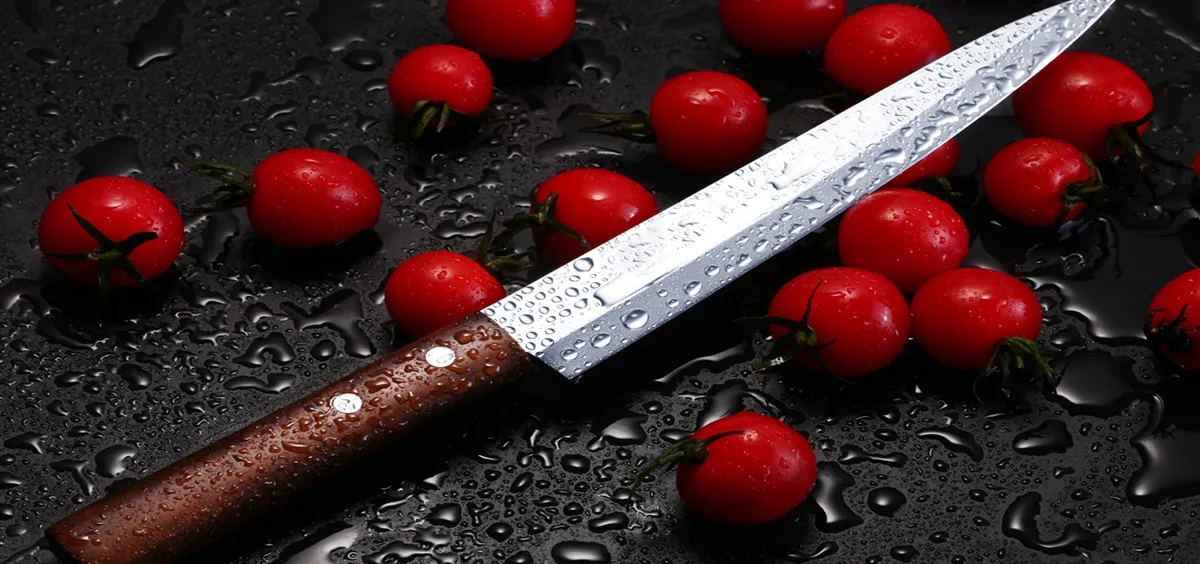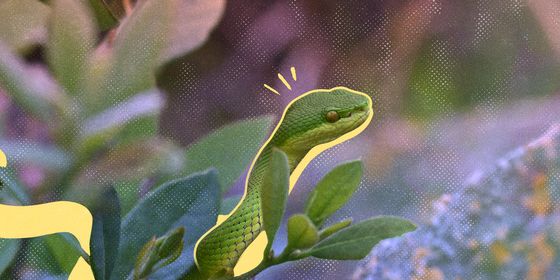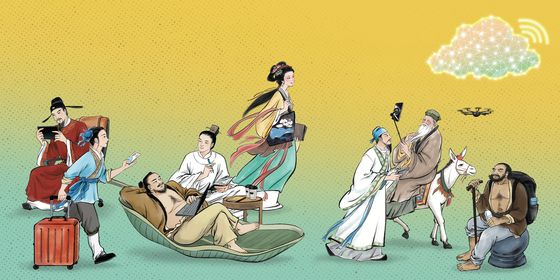Incisive idioms about one of humankind’s oldest tools
Choice Chengyu is a regular column, examining interesting, unique or newsworthy examples of chengyu—four-character idioms or proverbs, derived from historical and mythical events.
August 24 is—apparently—Knife Day in the US, a celebration of one of humankind’s oldest tools. In China, the character for knife (刀, dāo) first appeared in oracle bone inscriptions as a pictogram of a curved blade with a handle. In primitive societies, people made knives with bone, stone, and flint, and used them as tools of production. Gradually, knives began to serve as weapons.
Up until the Three Kingdoms period, long knives made of iron or steel were prevalent in battles—the classic novel Romance of the Three Kingdoms describes legendary general Guan Yu’s Green Dragon Crescent Moon Knife (青龙偃月刀), which symbolizes the hero’s strength and courage. In Chinese martial arts, the knife is known as “the general of all weapons (百兵之帅).” In classical literature, characters wielding a knife as weapon are often depicted as brave, chivalrous, and reckless.
The incisive blade and its uses throughout history have spawned a plethora of sharp chengyu:
刀光剑影 The glint and flash of daggers and swords
Knives have long been associated with violence, war, and danger. This chengyu refers to fierce fighting on the battlefield:
There was fierce fighting on the battlefield, and both sides suffered heavy losses.
Zhànchǎng shang dāoguāng jiànyǐng, shuāngfāng dōu sǔnshī cǎnzhòng.
战场上刀光剑影,双方都损失惨重。
刀山火海 Mountain of daggers and sea of flames
This chengyu refers to extreme danger:
Even if there’s a mountain of daggers and a sea of flames ahead, I won’t stop.
Jiùsuàn qiánfāng shì dāoshān huǒhǎi, wǒ yě búhuì jiùcǐ zhǐbù.
就算前方是刀山火海,我也不会就此止步。
拔刀相助 Unsheath one’s knife to go to the rescue of another
Many chengyu use knives to invoke a sense of courage, strength, and determination. This one is the motto of many chivalrous heroes from traditional Chinese literature, including Lu Zhishen and Wu Song in The Water Margin, referring to righting an injustice on behalf of another person:
When I see an injustice, of course I will go rush to the rescue.
Lùjiànbùpíng, wǒ dāngrán yào bádāo xiāngzhù.
路见不平,我当然要拔刀相助。
宝刀不老 A good sword always remains sharp
This idiom refers to someone who retains their skills or power despite old age. It’s origins lie in the Romance of the Three Kingdoms. In the novel, military general Zhang He of the Wei State mocks Huang Zhong, an elderly general of the Shu State: “You are so old. Aren’t you ashamed to go into battle?” Huang replied, “Do you despise me for my age? You will find my good knife is keen enough.” Huang proceeded to defeat Zhang in battle and prove that age is just a number:
He’s as good as ever! Earlier this year, he won the championship easily.
Tā bǎodāo bùlǎo, jīnnián zǎoxiē shíhou gāng qīngsōng yíngdé le quánguó guànjūn.
他宝刀不老,今年早些时候刚轻松赢得了全国冠军。
刀枪不入 Neither a knife nor a spear can harm
This chengyu can literally refer to a superpower, or be used as a metaphor for somebody impervious to criticism or admonishment:
It’s no use trying to talk him around, he’s impenetrable.
Gēn tā shuō yě méi yòng, tā zhège rén dāoqiāngbúrù.
跟他说也没用,他这个人刀枪不入。
笑里藏刀 Hide a knife behind a smile
The silent effectiveness of a sharpened knife has made it the weapon of choice for spies and assassins. Thus, some knife chengyu refer to schemes and conspiracies. This chengyu is for those who are sweet on the surface, but hide evil intentions:
Though seemingly kind, she hides her murderous intent behind a smile.
Tā biǎomiàn shang héaǎi kěqīn, shíjì shang xiàolǐcángdāo.
她表面上和蔼可亲,实际上笑里藏刀。
借刀杀人 Murder with a borrowed knife
The most conniving evil-doers don’t dirty their own knives, but instead use another’s blade to get the job done, hence this chengyu:
If we can get somebody else to deal with him, we’ll be spared a lot of trouble.
Rúguǒ wǒmen néng jièdāo shārén chúdiào tā, jiù néng shěngqù bùshǎo máfan.
如果我们能借刀杀人除掉他,就能省去不少麻烦。
人为刀俎,我为鱼肉 To be the meat on [somebody’s] chopping block
This is the phrase to use when you feel you are completely at the mercy of another person.
放下屠刀,立地成佛 Drop one’s cleaver and become a Buddha
Even the most despicable wrongdoers can achieve salvation through rehabilitation. This idiom describes rehabilitation after repenting one’s sins. You are mostly likely to hear it in wuxia movies, perhaps when an old monk tries to persuade a vengeful hero to stop the bloodshed:
Drop your knife, and you will become a Buddha immediately. Master, don’t repeat your mistake!
Fàngxia túdāo, lìdì chéngfó. Shīzhǔ, búyào yí cuò zài cuò le!
放下屠刀,立地成佛。施主,不要一错再错了!
Cover image from VCG












